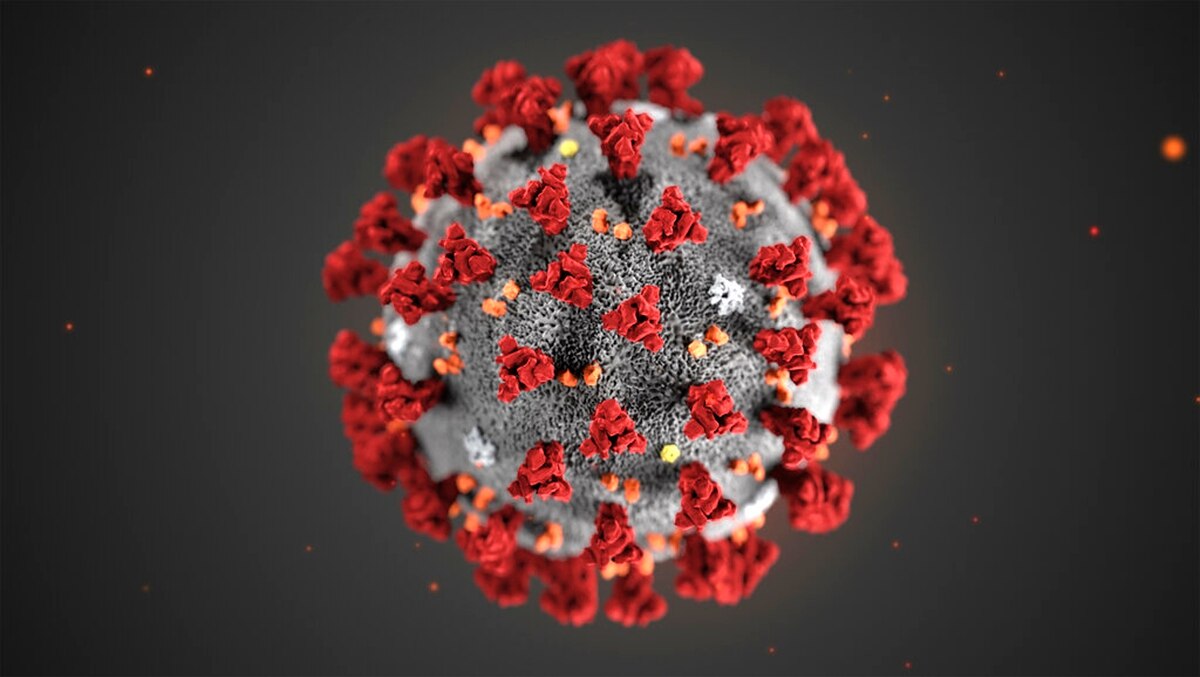
The effects of the coronavirus outbreak are extending into the final frontier.
COVID-19, the disease caused by the novel coronavirus, has sickened more than 270,000 people worldwide to date, with more than 11,000 confirmed deaths. Both of those numbers are bound to rise considerably because we're still in the early stages of the pandemic, health officials have stressed.
The economic impacts of COVID-19 are already significant, as anyone who keeps an eye on the stock market has surely noticed. Airline traffic is way down, major sports leagues such as the NBA have suspended or canceled their seasons, and many organizations are directing their employees to work from home.
Related: Live updates about the coronavirus and COVID-19
Count NASA in that latter group. The space agency has elevated its Ames Research Center in Silicon Valley, Marshall Space Flight Center in Alabama and Michoud Assembly Facility in Louisiana to Stage 4 of its "response framework," the highest level. Stage 4 facilities are closed, except for work required to protect life and critical infrastructure. All employees must work from home.
This has serious implications for some important NASA hardware. For example, the agency has temporarily halted most production and testing of its Space Launch System (SLS) megarocket and Orion capsule, which together will help get astronauts to the moon and Mars. The SLS's huge core stage is built at Michoud and tested at Stennis.
NASA's other facilities are at Stage 3 of the response framework, which mandates telework except for "mission-essential personnel."
Get the Space.com Newsletter
Breaking space news, the latest updates on rocket launches, skywatching events and more!
In addition, Europe's main spaceport, the Guiana Space Center in French Guiana, is suspending all launch campaigns indefinitely because of the pandemic, European officials announced on March 16.
And the effect on the space community is much deeper and broader than that, from canceled or postponed conferences to delays in the collection of science data. Here's a rundown of some of COVID-19's other notable impacts on space science and exploration.
A possible contributor to ExoMars launch delay
This motnh, the European Space Agency (ESA) and Russia's federal space agency, known as Roscosmos, announced that the planned July launch of the life-hunting ExoMars rover had been pushed back to 2022. (Launch windows for Mars missions come just once every 26 months, when Earth and the Red Planet are properly aligned.)
The delay is chiefly attributable to problems with the mission's parachute system, which has failed a series of key tests here on Earth. ESA officials also cited bugs in some key electronic equipment.
But travel restrictions designed to slow the spread of COVID-19 certainly haven't helped, said ESA Director General Jan Wörner. He noted that a planned meeting to discuss the fate of the ExoMars 2020 mission with his Roscosmos counterpart, Dmitry Rogozin, had to be canceled recently.
Rogozin made this point a bit more explicitly, saying that the coronavirus situation played a role, albeit a secondary one, in the delay.
"It is driven primarily by the need to maximize the robustness of all ExoMars systems, as well as force majeure circumstances related to exacerbation of the epidemiological situation in Europe, which left our experts practically no possibility to proceed with travels to partner industries," Rogozin said in a statement.
Related: Dramatic effect of coronavirus lockdowns seen from space
Some science campaigns delayed or cancelled
The coronavirus situation has also caused NASA to shift some of its scheduling.
For example, "three NASA Earth Science airborne science campaigns slated to deploy across the country this spring have rescheduled their field activity until later in the year," NASA Administrator Jim Bridenstine said in a statement on March 9.
"The campaigns are DeltaX, Dynamics and Chemistry of the Summer Stratosphere (DCOTTS), and Sub-Mesoscale Ocean Dynamics Experiment (S-MODE), which would include flights from Ames," he added. "The scientific returns of these projects are not expected to be impacted by this change of plans."
But NASA hopes to avoid a launch delay with its life-hunting Mars rover, Perseverance, which is scheduled to launch this summer.
"Currently, the coronavirus has not impacted the Mars Perseverance rover launch schedule. Launch preparations are continuing," agency officials wrote in a March 20 update
"NASA’s Mars 2020 mission, which includes the Perseverance Rover and Mars Helicopter, remains a high priority for the agency, and launch and other mission preparations will continue," they added. "Much of the work is being done by employees and contractors who work remotely across the agency."
The Event Horizon Telescope (EHT) project, in contrast, was not able to power through the outbreak. The EHT, an international consortium of about 200 scientists who last year revealed the first-ever direct images of a black hole, had to cancel its 2020 observing campaign.
Conferences and other events
And then there are the conferences. A number of high-profile meetings and other events have been canceled or postponed because of COVID-19 concerns.
For example, the Space Foundation announced March 13 that it's postponing the 36th Space Symposium, which was supposed to be held in Colorado Springs, Colorado, from March 30 through April 2. The Space Symposium is one of the space community's signature annual events, bringing together thousands of people from around the globe, including some very heavy hitters. This year's list of scheduled speakers included Bridenstine, U.S. Secretary of Commerce Wilbur Ross and Space Force Commander Gen. John Raymond.
Another prominent meeting, Satellite 2020 — which on Monday hosted SpaceX founder and CEO Elon Musk for a "keynote conversation" — ended one day earlier than planned, canceling all events that were scheduled to happen Thursday (March 12).
Satellite 2020 took place in Washington, D.C., and other events in and around the U.S. capital have also been affected. For instance, as SpaceNews reported, the American Astronautical Society postponed its annual Goddard Memorial Symposium in the Washington suburbs, which was supposed to be held March 17 through March 19.
The list goes on. The University of North Dakota's Department of Space Studies, for example, is pushing its annual symposium from May to late August. The Northeast Astronomy Forum (NEAF), which usually attracts thousands of people to Rockland Community College in Suffern, New York, for a weekend each year, is going online because of COVID-19. "NEAF: The Virtual Experience" will take place April 4, conference organizers said, though they aim to hold the in-person event later this year.
Coronavirus also claimed one of the world's biggest physics conferences: The American Physical Society canceled its March meeting, which was supposed to take place in Denver from March 2 to March 6.
And the American Astronomical Society (AAS) announced on March 13 that proceeding with its normal summer meeting this year,, which is scheduled to take place in Wisconsin from May 31 to June 4, "is simply not possible." The AAS hopes to hold the conference virtually, but it's unclear at the moment if that will happen.
The impact isn't limited to the United States, of course. The European Southern Observatory has canceled public events at its headquarters in Garching, Germany, and has suspended public visits to La Silla and Paranal, two of its big observatories in Chile.
And, as SpaceNews noted, the United Nations Committee on the Peaceful Uses of Outer Space canceled a meeting of its legal subcommittee, which was scheduled to take place in Vienna from March 23 to April 3.
This is just a partial list, of course; the total tally of affected events is too long to detail here. But Space.com will continue updating this page, to let you know about the most important delays and cancellations.
- Coronavirus outbreak: Live updates
- NASA is monitoring coronavirus situation for impacts to US space program
- Coronavirus prompts ESO to close facilities, cancel events
This story was last updated at 9:45 p.m. EDT on March 20.
Mike Wall is the author of "Out There" (Grand Central Publishing, 2018; illustrated by Karl Tate), a book about the search for alien life. Follow him on Twitter @michaeldwall. Follow us on Twitter @Spacedotcom or Facebook.
OFFER: Save at least 56% with our latest magazine deal!
All About Space magazine takes you on an awe-inspiring journey through our solar system and beyond, from the amazing technology and spacecraft that enables humanity to venture into orbit, to the complexities of space science.
OFFER: Save at least 56% with our latest magazine deal!
All About Space magazine takes you on an awe-inspiring journey through our solar system and beyond, from the amazing technology and spacecraft that enables humanity to venture into orbit, to the complexities of space science.
OFFER: Save at least 56% with our latest magazine deal!
All About Space magazine takes you on an awe-inspiring journey through our solar system and beyond, from the amazing technology and spacecraft that enables humanity to venture into orbit, to the complexities of space science.
OFFER: Save at least 56% with our latest magazine deal!
All About Space magazine takes you on an awe-inspiring journey through our solar system and beyond, from the amazing technology and spacecraft that enables humanity to venture into orbit, to the complexities of space science.
Join our Space Forums to keep talking space on the latest missions, night sky and more! And if you have a news tip, correction or comment, let us know at: community@space.com.

Michael Wall is a Senior Space Writer with Space.com and joined the team in 2010. He primarily covers exoplanets, spaceflight and military space, but has been known to dabble in the space art beat. His book about the search for alien life, "Out There," was published on Nov. 13, 2018. Before becoming a science writer, Michael worked as a herpetologist and wildlife biologist. He has a Ph.D. in evolutionary biology from the University of Sydney, Australia, a bachelor's degree from the University of Arizona, and a graduate certificate in science writing from the University of California, Santa Cruz. To find out what his latest project is, you can follow Michael on Twitter.










